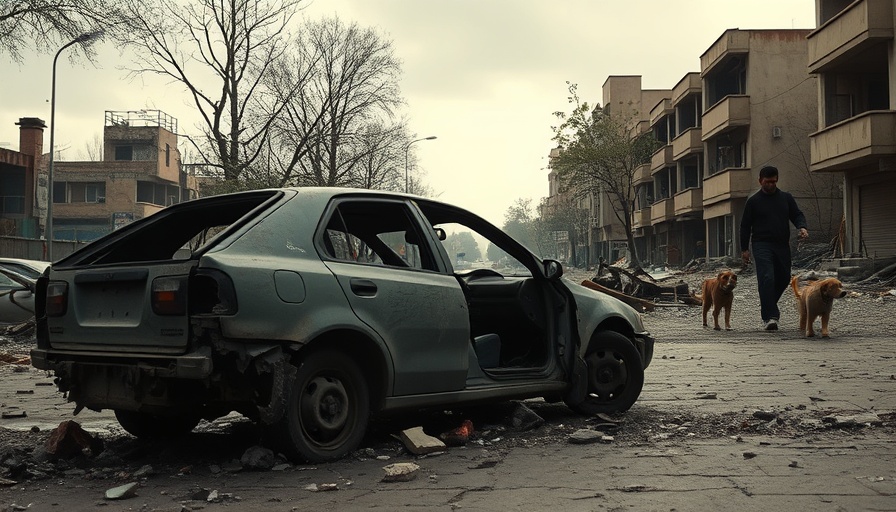
Key Developments in the Ukraine-Russia Conflict
The ongoing conflict between Ukraine and Russia continues to escalate, underscored by a massive barrage of missiles and drones launched by Russia on July 4, 2025. This assault, which targeted Kyiv and other cities, was the largest single strike since the war began. The timing raises questions: how much influence do high-profile political calls, such as between President Trump and President Putin, have on military actions?
Understanding the Scale of Recent Attacks
Ukraine's Air Force reported that the July 4 attack involved an unprecedented number of missiles and drones, stirring concerns over the intensity of Russia’s military strategy. For months, Russia has employed tactics that combine various types of attacks—exploding drones, cruise and ballistic missiles, and decoys—aimed at overwhelming Ukraine's air defenses. Such aggressive maneuvers point to a troubling new phase in the conflict.
Political Dynamics Behind the Conflict
The context of the missile strikes is crucial. Just before the assault, Presidents Trump and Putin held a phone call, after which Trump publicly stated he had made no progress negotiating peace with the Russian leader. Curiously, this was not the first call between the two this year; it marked at least the sixth conversation. Given the precarious state of U.S.-Ukraine military support, the lack of effective communication between these leaders could have dire consequences.
The Human Impact of Escalating Warfare
Military conflicts have far-reaching effects on both civilian lives and national stability. The most recent strikes caused significant alarm in Kyiv, with reports of damage to residential buildings across multiple neighborhoods. Although no injuries were immediately reported, the psychological toll on residents is immense, who now must live under the constant threat of drone and missile attacks.
Future Predictions: What Lies Ahead?
As the nature of the conflict evolves, numerous factors will contribute to the future of Ukraine. If drone and missile attacks remain a cornerstone of Russia's strategy, the Ukrainian military might need to increasingly rely on international aid and support. Failing that, the citizens of Ukraine may face a compounded crisis where military aggression cripples day-to-day life.
Counterarguments: Perspectives on Diplomacy
While the situation appears overwhelmingly grim, some argue that continuous dialogue is key to de-escalation. Past negotiations have at times yielded temporary cease-fires or humanitarian corridors, highlighting the importance of diplomacy even amidst full-scale attack. However, given the nature of recent conversations, there is skepticism regarding their effectiveness in producing meaningful change.
Public Sentiment and Global Reactions
Public reaction to continued attacks has provoked strong emotions, ranging from anger to despair. Global leaders have expressed their displeasure at Russia's actions, with calls for heightened sanctions and support for Ukraine. In parallel, public opinion within Ukraine may reach a critical point, influencing governmental policies and international alliances in future endeavors.
Implications for Western Allies
The U.S. decision to withhold certain military supplies from Ukraine may have far-reaching implications for Western alliances. Strategic military aid has been perceived by some as essential for Ukraine's defense. As responses from other nations evolve, so too will the geopolitical landscape; countries will have to make difficult choices in balancing support for Ukraine against their own national interests.
Conclusion: The Necessity for Action
The conflict between Ukraine and Russia continues to evolve, with new developments occurring almost daily. Understanding the underlying political dynamics, military strategies, and human costs associated with this war is critical for both the international community and those directly affected in Ukraine. From diplomatic communication to military aid, each action counts as the world watches this pivotal moment in modern history.
 Add Row
Add Row  Add
Add 




 Add Row
Add Row  Add
Add 

Write A Comment